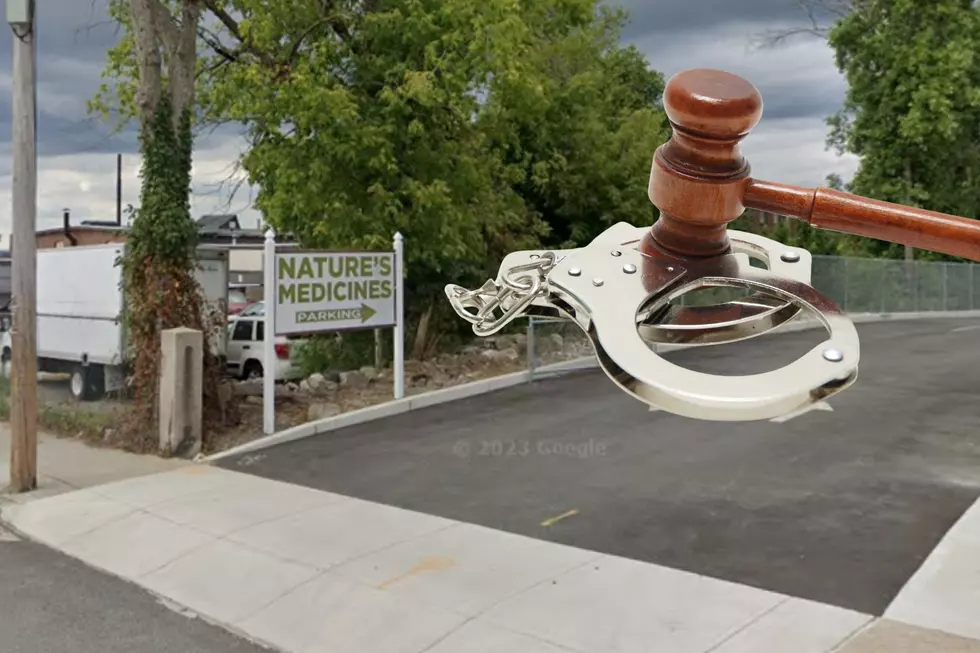
State Lawmakers Unfamiliar with Requested Changes to Pot Law
BOSTON — It has been one of the thorniest issues for marijuana regulators, but legislative leaders on Monday appeared unaware of the Cannabis Control Commission's months-old request for authority to enforce the mandatory agreements between host communities and marijuana businesses.
State law requires applicants for marijuana business licenses to enter into a host community agreement before the CCC will consider an application. The law stipulates that those agreements cannot run for more than five years and that the community impact fee paid to the municipality by the licensee cannot exceed 3 percent of the establishment's gross sales.
But the CCC has wrestled with the policy for more than a year now as entrepreneurs, lawyers and lobbyists have shared stories about cities or towns demanding a greater percentage of gross sales or other asks that would not appear to comply with the language of the law. In January, the CCC voted to formally request that the Legislature grant it "statutory authority to review and regulate" HCAs.
"If they believe there are things about the legislation that was enacted and that we signed that need to be amended based on the first six, eight, 10 months they've had of sort of real-life experience with that, I'm certainly interested in hearing what they have to say and I'm sure these guys would be as well," Gov. Charlie Baker said on Monday, referring to the CCC.
Baker had been asked after meeting with House Speaker Robert DeLeo and Senate President Karen Spilka on Monday afternoon if the indictment of the Fall River mayor for allegedly taking bribes from marijuana companies was a sign that the marijuana licensing process needs to change. He said he would be interested in hearing from the CCC about any and all potential changes to the law.
Asked specifically about the issue of host community agreements, Baker said, "Again, if there is something here that the commission, which is obviously worrying about this day in and day out, has concerns about, that or other pieces of it, then at some point I would advise them to make the Legislature and us aware of those things."
But when the legislative leaders were asked about the CCC's months-old request for enforcement authority over HCAs, DeLeo and Spilka said there first needs to be some legislation for lawmakers to consider.
"We haven't seen any legislation at this point that has been filed. I have not heard from any representative that the commission had gone to them in any sense and asked them to file legislation on their behalf, so until that is done, it at least starts the process," DeLeo said. "Right now, there is nothing really before us to consider."
Just six weeks ago, the Legislature's Joint Committee on Cannabis Policy held a hearing on two bills (S 1126 and H 3536) that seek to rein in some of the issues with HCAs and give the CCC the explicit authority to regulate the agreements. Those bills remain before the committee. They were filed by DeLeo's handpicked Cannabis Policy Committee chairman, Rep. David Rogers, and Spilka's assistant majority whip, Sen. Julian Cyr.
Spilka concurred with DeLeo, adding, "If there is some legislation that's filed and there's some discussion and some needs that are shown whether it be for this issue or any issue, we would certainly re-evaluate and take a look at it."
In a statement late Monday, CCC Chairman Steven Hoffman noted that the CCC has "publicly discussed at several meetings the gaps in state law that prevent our agency from enforcing host community agreements" and has determined that it lacks the necessary legal authority to intervene in HCAs. He noted that the CCC backed up that position with a vote of the five commissioners.
"Following that vote, the Commission submitted a report to the Legislature that outlines the need for further clarity regarding the Commission's authority to review these agreements. We are grateful to the Chairs of the Joint Committee on Cannabis Policy for holding a July hearing on legislation filed by Chairman David Rogers and Senator Julian Cyr to address this issue," Hoffman said. "We will continue to work with the Legislature and the Administration to secure the authority the Commission has sought regarding host community agreements."
One of Spilka's Senate colleagues, Sen. Patricia Jehlen, was among those who made the case for the legislation at the July 29 committee hearing. Jehlen, one of the chief negotiators when the Legislature rewrote the 2016 ballot law legalizing marijuana, said that it's "frustrating" to see parts of the law she helped write be misapplied or not applied at all.
"We work really hard to pass legislation and then it doesn't turn out to be applied and have the results that we expected. So I hope the committee will require that this law be enforced by passing" S 1126 and H 3536, Jehlen said at the hearing.
She said that HCAs were meant to incentivize communities to embrace legal marijuana businesses so that the legal market can grow, become more widely accessible and establish some competitive pricing to attract consumers away from the illicit market. Since the HCAs aren't being enforced, she said, the illicit market is benefitting.
When it voted to ask the Legislature in January for the power to review and regulate HCAs, the CCC debated trying to submit legislation ahead of the bill filing deadline. Ultimately, the CCC agreed to make the request of the Legislature, but not to propose specific bill language.
"I think we're going to probably submit a request. I don't think it's our place to submit language, but we will submit a request to the Legislature around what the issues are and what help we're looking for," Hoffman said at the time.
The CCC did not submit testimony to the Cannabis Policy Committee when the bills were up for a public hearing in July. Commissioner Shaleen Title, who led an unsuccessful push last summer to have the CCC review HCAs as part of the licensing process, submitted testimony on her own behalf.
"From my perspective as a commissioner appointed for expertise in social justice, the lack of enforcement of the legal limitations of host community agreements is a major barrier to entry for small businesses," she wrote.
After hearing about 90 minutes of testimony on the issue of HCAs in July, committee co-chair Sen. Sonia Chang-Diaz said she is "hardpressed ... not to conclude that host community agreements are a significant barrier to the social equity goals" of the state's marijuana law.
More From WBSM-AM/AM 1420



![Fall River Dog Is the Ultimate Adventure Buddy [WET NOSE WEDNESDAY]](http://townsquare.media/site/519/files/2024/04/attachment-Untitled-design-2024-04-24T063451.295.jpg?w=980&q=75)





